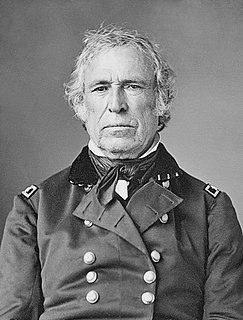A Quote by Edward Gibbon
Vicissitudes of fortune, which spares neither man nor the proudest of his works, which buries empires and cities in a common grave.
Related Quotes
Good fortune almost always makes some change in a man's behavior - in his manner of speaking and acting. It is a great weakness to want to bedeck oneself in qualities which are not his own. If he esteemed virtue above all other things, neither the favors of fortune nor the advantages of position would change a man's face or heart.
In trading with each other cities can't be in too different stages of development, and they can't copy one another. Backward cities, or younger cities, or newly forming cities in supply regions, have to develop to a great extent on one another's shoulders. This is one of the terrible things about empires. Empires want them only to trade with the empire, which doesn't help them at all. It's just a way of exploiting them.
I have neither the scholar's melancholy, which is emulation; nor the musician's, which is fantastical; nor the courtier's, which is proud; not the soldier's which is ambitious; nor the lawyer's, which is politic; nor the lady's, which is nice; nor the lover's, which is all these: but it is a melancholy of mine own, compounded of many simples, extracted from many objects, and indeed the sundry contemplation of my travels, which, by often rumination, wraps me in a most humorous sadness.
All I desire is, that my poverty may not be a burden to myself, or make me so to others; and that is the best state of fortune that is neither directly necessitous nor far from it. A mediocrity of fortune, with gentleness of mind, will preserve us from fear or envy; which is a desirable condition; for no man wants power to do mischief.
The establishment of inner harmony is to be attained neither in the past nor in the future, but where the past and future meet, which is the now. When you have attained that point, neither future nor past, neither birth nor death, neither time nor space exist. It is that NOW which is liberation, which is perfect harmony, to which the men of the past and the men of the future must come.
What I mean by Socialism is a condition of society in which there should be neither rich nor poor, neither master nor master's man, neither idle nor overworked, neither brainslack brain workers, nor heartsick hand workers, in a word, in which all men would be living in equality of condition, and would manage their affairs unwastefully, and with the full consciousness that harm to one would mean harm to all - the realisation at last of the meaning of the word 'commonwealth.'
At first, man was enslaved by the gods. But he broke their chains. Then he was enslaved by the kings. But he broke their chains. He was enslaved by his birth, by his kin, by his race. But he broke their chains. He declared to all his brothers that a man has rights which neither god nor king nor other men can take away from him, no matter what their number, for his is the right of man, and there is no right on earth above this right. And he stood on the threshold of freedom for which the blood of the centuries behind him had been spilled.
Neither fear nor self-interest can convert the soul. They may change the appearance, perhaps even the conduct, but never the object of supreme desire... Fear is the motive which constrains the slave; greed binds the selfish man, by which he is tempted when he is drawn away by his own lust and enticed (James 1:14). But neither fear nor self-interest is undefiled, nor can they convert the soul. Only charity can convert the soul, freeing it from unworthy motives.
Into this wild Abyss/ The womb of Nature, and perhaps her grave--/ Of neither sea, nor shore, nor air, nor fire,/ But all these in their pregnant causes mixed/ Confusedly, and which thus must ever fight,/ Unless the Almighty Maker them ordain/ His dark materials to create more worlds,--/ Into this wild Abyss the wary Fiend/ Stood on the brink of Hell and looked a while,/ Pondering his voyage; for no narrow frith/ He had to cross.
To sow, that others may reap; to work and plant for those that are to occupy the earth when we are dead; to project our influences far into the future, and live beyond our time; to rule as the Kings of Thought, over men who are yet unborn; to bless with the glorious gifts of Truth and Light and Liberty those who will neither know the name of the giver, nor care in what grave his unregarded ashes repose, is the true office of a Mason and the proudest destiny of a man.
There is no talent so useful toward rising in the world, or which puts men more out of the reach of fortune, than that quality generally possessed by the dullest sort of men, and in common speech called discretion; a species of lower prudence, by the assistance of which, people of the meanest intellectuals, without any other qualification, pass through the world in great tranquillity, and with universal good treatment, neither giving nor taking offence.
If you can walk with the crowd and keep your virtue,
Or walk with Kings-nor lose the common touch;
If neither foes nor loving friends can hurt you;
If all men count with you, but none too much;
If you can fill the unforgiving minute
With sixty seconds' worth of distance run,
Yours is the Earth and everything that's in it,
And - which is more - you'll be a man my son!







































